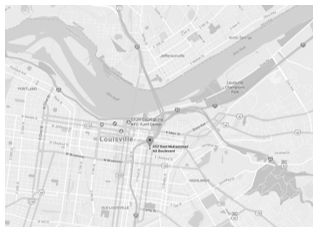Growing the number of nurse practitioners in medically underserved areas is one goal of a federally-funded traineeship grant
August 12, 2014
Growing the number of nurse practitioners in medically underserved areas is one goal of a federally-funded traineeship grant
UofL School of Nursing receives nearly $700,000 from the Health Resources and Services Administration
LOUISVILLE, Ky. – More than a dozen University of Louisville School of Nursing master’s degree students will receive substantial assistance to pay for their education. The Health Resources and Services Administration has awarded the school a two-year $670,000 Advanced Nurse Education Traineeship Grant to help 15 current and new family nurse practitioner (FNP) and adult-gerontology nurse practitioner (AGNP) students pay for tuition, books, program fees, and living expenses. The first cohort of trainees begins in August 2014.
The ultimate goal of the grant is to increase the number of advanced practice registered nurses (APRNs) who practice in medically underserved areas. To that end, the school hopes the traineeship funding will help recruit qualified veterans and individuals from under-represented or educationally disadvantaged backgrounds, with the hope they will give back to their own communities upon graduation.
“Preparing AGNPs and FNPs in primary care is essential to offset the anticipated shortage of more than 400 primary care physicians in the Louisville Metro area by the year 2020,” said the project director, S. Lee Ridner, PhD, FNP-BC, associate dean for graduate programs and family nurse practitioner program coordinator, UofL School of Nursing.
The traineeship also will assist the school, the university, and the community in achieving a critical goal of UofL’s Signature Partnership –improving health outcomes and addressing health disparities of residents in West Louisville.
In addition to the main FNP and AGNP course requirements, trainees will take part in a new course, Impact of Social Determinants of Health on Diverse Populations, to be taught by Ridner and Vicki Hines-Martin, PhD, RN, FAAN, professor and director, UofL School of Nursing Office of Health Disparities and Community Engagement.
“We’ll teach students how to analyze the social conditions that affect the health of urban and rural populations. Included in this will be a discussion of socioeconomic position, social and economic inequality, discrimination, social networks, community setting, social capital and resources, and work conditions that impact health status,” said Hines-Martin. “Students will complete their clinical experience in medically underserved areas, UofL clinics and the health department with underserved populations.”
